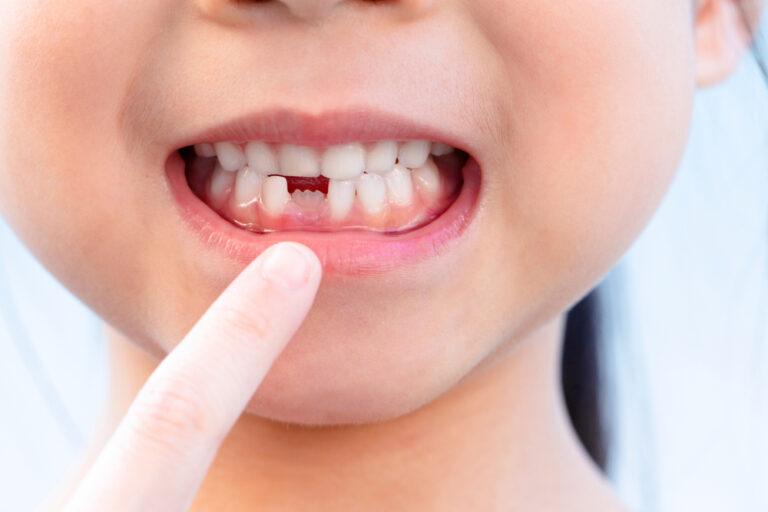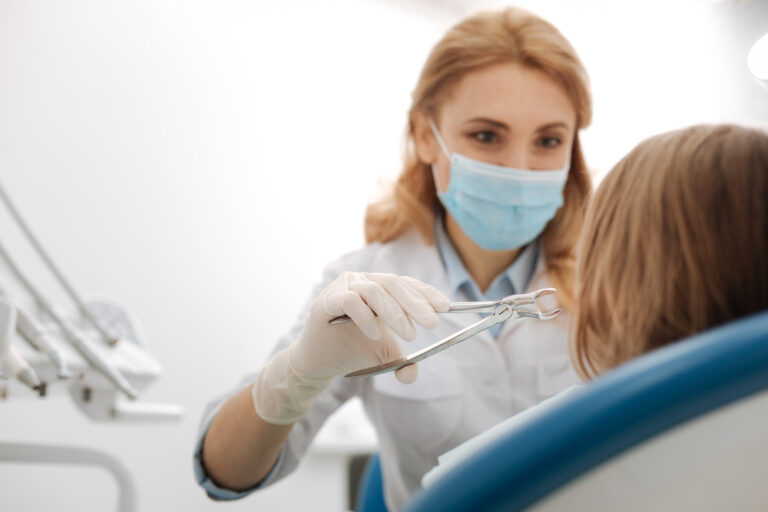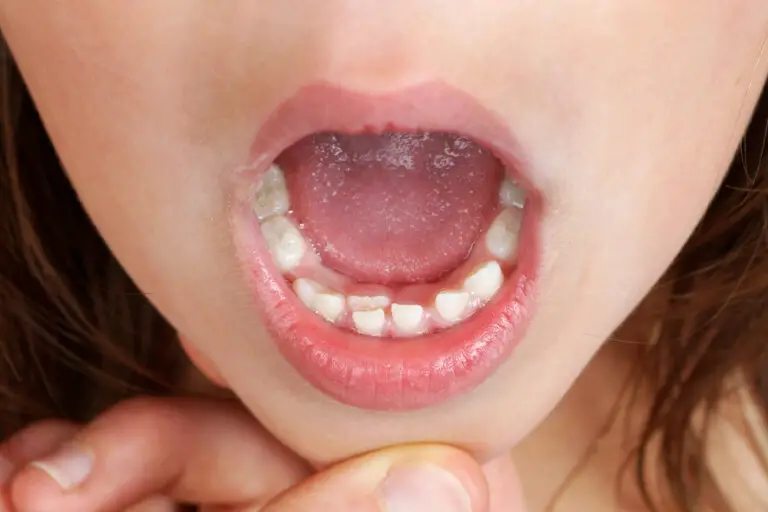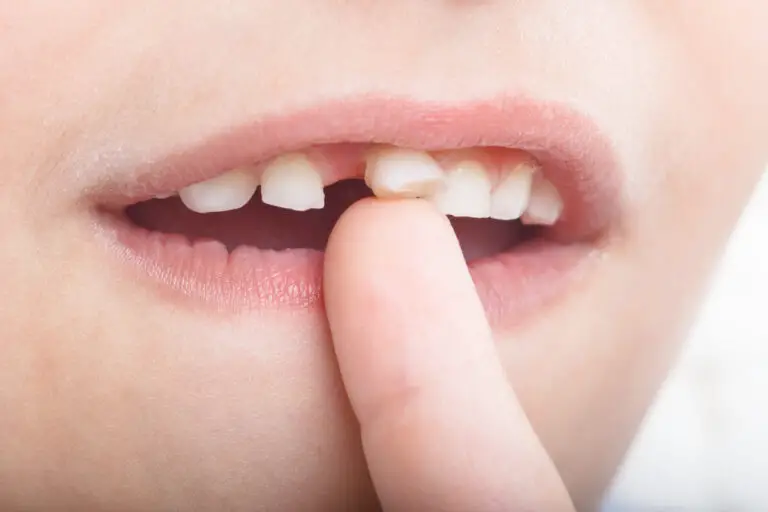Have you recently had your wisdom teeth removed and are wondering if your stitches can come undone? It’s a common concern for those who have undergone this procedure. While it’s rare for stitches to come undone after wisdom teeth removal, it can happen.
Stitches are used to help close the incision site and promote healing after the extraction. They also help to prevent food and debris from getting stuck in the socket, which can lead to infection. However, if the stitches become loose or come out too early, it can lead to complications and delay the healing process.
In this article, we’ll discuss the reasons why stitches may come undone after wisdom teeth removal and what you can do to prevent it. We’ll also cover the signs and symptoms of a problem with your stitches and when to contact your dentist or oral surgeon. So, if you’re worried about your stitches coming undone, keep reading to learn more.
Understanding Wisdom Teeth Removal

If you are experiencing pain or discomfort in the back of your mouth, it may be time to have your wisdom teeth removed. Wisdom teeth are the last set of molars to grow in, typically between the ages of 17 and 25. However, they often cause problems due to their size and position in the mouth.
During the wisdom teeth removal procedure, your dentist or oral surgeon will make an incision in the gum tissue to access the tooth. They may need to remove bone to fully extract the tooth. After the tooth is removed, the area will be cleaned and stitched up to promote healing.
It is normal to experience some pain and swelling after the procedure. Your dentist or oral surgeon will provide you with instructions to follow during your recovery period, including taking pain medication, avoiding certain foods, and keeping the surgical site clean.
In some cases, the stitches used to close the incision may come undone or become loose. This can happen due to a variety of reasons, such as excessive movement of the mouth or not following post-operative instructions. If you notice that your stitches are coming undone, it is important to contact your dentist or oral surgeon right away.
In the next section, we will discuss what to do if your stitches come undone after wisdom teeth removal.
What Are Stitches in Dental Surgery
If you are getting your wisdom teeth removed, you may be wondering what stitches are and why they are used during dental surgery. Stitches are a common part of many dental procedures, including wisdom tooth removal. In this section, we will discuss the different types of stitches used in dental surgery and their purpose.
Types of Stitches
There are two main types of stitches used in dental surgery: non-dissolvable and dissolvable. Non-dissolvable stitches are made from materials that do not dissolve and need to be removed by a dentist or oral surgeon. Dissolvable stitches, on the other hand, are made from materials that dissolve over time and do not need to be removed.
Purpose of Stitches
Stitches are used during dental surgery to help promote healing and prevent infection. They are used to close the incision made during the procedure and hold the gum tissue in place. This helps to stabilize the gum tissue and promote faster healing. Stitches can also help to reduce bleeding and swelling after the procedure.
During wisdom tooth removal, stitches are typically placed in the area where the tooth was removed. The stitches help to close the incision and hold the gum tissue in place while it heals. In some cases, stitches may also be placed in the cheek or other areas of the mouth to help promote healing.
In summary, stitches are an important part of many dental procedures, including wisdom tooth removal. They help to promote healing, prevent infection, and reduce bleeding and swelling. Your dentist or oral surgeon will determine if stitches are necessary for your procedure and what type of stitches should be used.
Can Stitches Come Undone After Wisdom Teeth Removal

If you have recently had wisdom teeth removal surgery, you may be wondering if your stitches can come undone. The answer is yes, it is possible for stitches to come undone after wisdom teeth removal. In this section, we will discuss the causes and signs of stitches coming undone.
Causes of Stitches Coming Undone
Stitches can come undone for several reasons, including:
- Movement: If you move your mouth too much after surgery, the stitches can come undone.
- Infection: If you develop an infection at the surgical site, it can cause the stitches to come undone.
- Sutures: If the sutures used to close the wound are not strong enough, they can come undone.
Signs of Stitches Coming Undone
Here are some signs that your stitches may be coming undone:
- Bleeding: If you notice bleeding from the surgical site, it may be a sign that your stitches have come undone.
- Pain: If you experience pain that is not relieved by pain medication, it may be a sign that your stitches have come undone.
- Swelling: If you notice swelling around the surgical site, it may be a sign that your stitches have come undone.
- Loose stitches: If you can see or feel loose stitches in your mouth, it is a clear sign that they have come undone.
If you experience any of these signs, it is important to contact your dentist or oral surgeon immediately. They will be able to examine your mouth and determine if your stitches have come undone. If they have, they may need to re-stitch the wound to ensure proper healing.
Preventing Stitches From Coming Undone
After wisdom teeth removal, it is important to take precautions to prevent your stitches from coming undone. Here are some tips to help you avoid this problem.
Post-Surgery Care
Proper post-surgery care can help prevent your stitches from coming undone. Here are some things you can do to care for your stitches:
- Bite down gently on the gauze pad placed over the surgical area to reduce bleeding and allow a clot to form.
- Apply an ice pack to your cheek to reduce swelling.
- Take pain medication as prescribed by your dentist or oral surgeon.
- Rinse your mouth gently with warm salt water several times a day to keep the area clean.
Dietary Recommendations
What you eat after wisdom teeth removal can also affect your stitches. Here are some dietary recommendations to follow:
- Stick to soft foods like yogurt, applesauce, and mashed potatoes for the first few days after surgery.
- Avoid hard, crunchy, or spicy foods that can irritate the surgical area.
- Drink plenty of fluids to stay hydrated.
Activity Limitations
It is important to limit your activity after wisdom teeth removal to prevent your stitches from coming undone. Here are some activity limitations to follow:
- Avoid strenuous physical activity for the first few days after surgery.
- Do not smoke or use tobacco products, as they can delay healing.
- Do not drink alcohol, as it can interfere with the healing process.
By following these tips, you can help prevent your stitches from coming undone and ensure a smooth recovery after wisdom teeth removal.
What to Do If Your Stitches Come Undone

If your stitches come undone after wisdom teeth removal, it can be a cause for concern. However, it’s important to know what steps you can take to manage the situation.
Immediate Steps
If you notice that your stitches have come undone, the first thing you should do is rinse your mouth with warm salt water. This will help to clean the area and reduce the risk of infection. You should also gently apply pressure to the area with a clean piece of gauze to help stop any bleeding.
When to Contact Your Dentist
If you’re unable to stop the bleeding or if you’re experiencing severe pain, you should contact your dentist immediately. They may need to see you to determine if further treatment is necessary.
It’s also important to contact your dentist if you notice any signs of infection, such as redness, swelling, or pus around the area. Your dentist may need to prescribe antibiotics to help clear up the infection.
In some cases, your dentist may need to replace the stitches. They will be able to determine if this is necessary based on the severity of the situation.
Remember to follow any post-operative instructions provided by your dentist to ensure proper healing. Avoid smoking, drinking through a straw, and eating hard or crunchy foods until your dentist gives you the all-clear.
Overall, it’s important to stay calm if your stitches come undone after wisdom teeth removal. By taking the appropriate steps and contacting your dentist if necessary, you can ensure proper healing and prevent any complications.
Potential Complications If Stitches Come Undone
If your stitches come undone after wisdom teeth removal, it can lead to potential complications. Here are some of the possible complications you may experience:
Infection
When your stitches come undone, it can expose the wound to bacteria, which can cause an infection. Signs of an infection include:
- Redness and swelling around the wound
- Pain or tenderness around the wound
- Pus or discharge from the wound
- A fever
If you experience any of these symptoms, contact your oral surgeon immediately. They may prescribe antibiotics to treat the infection.
Delayed Healing
When your stitches come undone, it can also delay the healing process. Healing after wisdom teeth removal typically takes about a week, but it can take longer if your stitches come undone. Some potential causes of delayed healing include:
- Excessive bleeding
- Infection
- Smoking or using tobacco products
- Poor oral hygiene
To promote healing, it’s important to follow your oral surgeon’s instructions carefully. This may include:
- Rinsing your mouth with warm salt water
- Taking pain medication as prescribed
- Eating soft foods
- Avoiding smoking or using tobacco products
- Keeping the wound clean and dry
If you experience delayed healing, contact your oral surgeon. They may recommend additional treatment, such as a medicated mouthwash or a follow-up appointment.
Frequently Asked Questions
How long do wisdom teeth stitches usually last?
Wisdom teeth stitches usually last for about 7 to 10 days after the surgery. However, the exact duration may vary depending on the type of stitches used and the individual’s healing process.
What should I do if my wisdom teeth stitches come out?
If your wisdom teeth stitches come out, it is important to contact your dentist or oral surgeon immediately. They will be able to advise you on the next steps to take based on your specific situation.
Is it normal for wisdom teeth stitches to feel irritating?
It is normal for wisdom teeth stitches to feel slightly irritating or uncomfortable during the healing process. However, if you experience excessive pain or bleeding, it is important to contact your dentist or oral surgeon right away.
Can wisdom teeth stitches come undone and what are the risks?
Yes, wisdom teeth stitches can come undone, especially if they are not properly taken care of during the healing process. The risks of undone stitches include bleeding, infection, and delayed healing.
What do I do if my dissolvable stitches are hanging in my mouth?
If your dissolvable stitches are hanging in your mouth, you should contact your dentist or oral surgeon right away. They will be able to remove the stitches and ensure that the healing process is not affected.
When should wisdom teeth stitches be removed?
Wisdom teeth stitches should be removed by a dentist or oral surgeon after the appropriate healing time has passed. The exact time frame may vary based on the individual’s healing process and the type of stitches used. It is important to follow your dentist’s or oral surgeon’s recommendations for proper healing.







